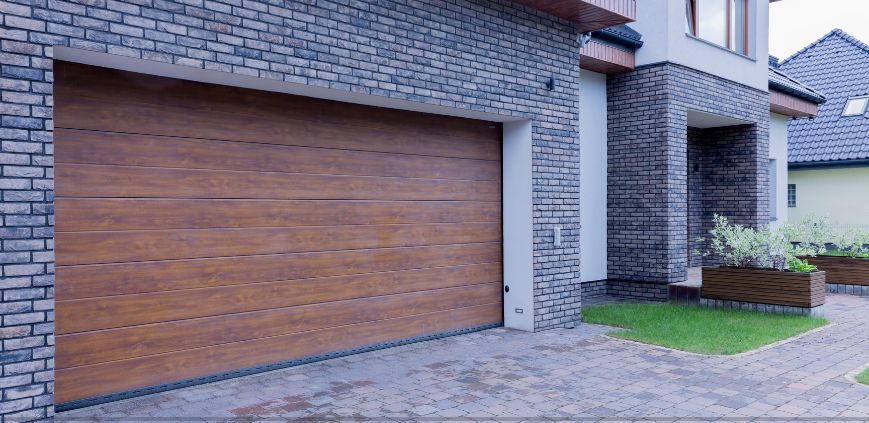Preparing for Exterior Renos
Replacing a garage door is a significant investment, but it can enhance your home’s curb appeal, security and energy efficiency. It's important to know when to replace a garage door, how to find a reliable company and what factors to consider before making this decision. Below you'll find helpful information on garage door replacement to help make an affordable choice.
When to Replace Your Garage Door
A garage door is an essential part of your home. Its provides security, insulation and ease of access. Over time, wear and tear can take a toll, leading to issues that might indicate it’s time for a replacement. Here are some signs that suggest you should consider replacing your garage door:
- Frequent breakdowns: If your garage door frequently malfunctions or requires constant repairs, it might be more cost-effective to replace it. Constant breakdowns not only inconvenience you but can also be a safety hazard.
- Visible damage: Dents, cracks, rust and other visible damage to the door panels or tracks can compromise the door’s functionality and appearance. Structural damage may also affect the door’s ability to provide security and insulation.
- Increased energy bills: Older garage doors often lack proper insulation which leads to energy loss. If you’ve noticed a spike in your energy bills, especially in the summer or winter, your garage door might be the culprit. Replacing it with a modern, insulated door can improve energy efficiency.
- Noise levels: If your garage door makes excessive noise when opening or closing, it could be a sign of worn-out parts or poor alignment. While some noise can be fixed with maintenance, significant or persistent noise may indicate that the door is nearing the end of its lifespan.
- Outdated design: Sometimes, the decision to replace a garage door is driven by aesthetics. If your garage door looks outdated or doesn’t match the style of your home, upgrading to a new design can significantly boost your home’s curb appeal.
- Safety concerns: Modern garage doors come with safety features such as photo-eye sensors and auto-reverse mechanisms. If your current door lacks these features, replacing it can enhance the safety of your home, particularly if you have children or pets.
How to Find a Good Garage Door Replacement Company
Once you’ve decided to replace your garage door, the next step is finding a reputable company to handle the job. Here are some tips to help you choose the right contractor:
- Research and referrals: Ask friends, family or neighbors for recommendations. Personal referrals are often the most reliable source of information. Additionally, you can look for online reviews on platforms like Google, Yelp or the Better Business Bureau to get an idea of a company’s reputation.
- Check credentials: Ensure that the company is licensed, insured and bonded. A licensed contractor has met local regulations, and insurance protects you from liability in case of accidents or damages during the project.
- Experience and expertise: Look for companies that specialize in garage door replacement and have several years of experience. Experienced contractors are more likely to provide quality work and have the expertise to handle any unexpected challenges that may arise during the installation.
- Get multiple quotes: Obtain quotes from at least three different companies. This will give you a better understanding of the average cost and help you identify any outliers—either too high or too low. Be wary of extremely low quotes, as they may indicate subpar materials or workmanship.
- Review the contract: Before signing any contract make sure it includes all the details of the project, including the scope of work, materials, timeline and payment schedule. A clear contract reduces the risk of misunderstandings and ensures that both parties are on the same page.
What to Consider Before Replacing a Garage Door
Before moving forward with a garage door replacement, there are several factors to consider to ensure you make the right choice:
- Material: Garage doors come in various materials: steel, aluminum, wood and fiberglass. Each material has its pros and cons in terms of durability, maintenance and appearance. Steel doors are durable and low-maintenance, while wood offers a classic look but requires more upkeep. Consider your climate, maintenance preferences and aesthetic goals when choosing a material.
- Insulation: If your garage is attached to your home or used as a workspace, consider an insulated garage door. Insulated doors help regulate the temperature inside the garage. This reduces energy costs and makes the space more comfortable.
- Design and style: Garage doors come in a wide range of designs, from traditional to modern. Consider the architectural style of your home when choosing a design. You can also customize the door with windows, decorative hardware and paint colors to match your home’s exterior.
- Safety features: Ensure that the new garage door includes modern safety features like pinch-resistant panels, tamper-resistant brackets and auto-reverse mechanisms. These features can prevent accidents and enhance the safety of your home.
- Warranty: Check the warranty offered by the manufacturer and the installation company. A good warranty can protect you from future repair costs and give you peace of mind that your investment is protected.
- Budget: Garage door replacement is a significant investment, so it’s important to set a realistic budget. Consider the cost of the door itself, installation fees and any additional features you may want. While it’s tempting to choose the cheapest option, investing in a high-quality door can save you money in the long run by reducing maintenance and energy costs.
Once you've considered all of the above, you're ready to move forward with your garage door replacement. Need to replace your windows and doors too? Check out our guide.
